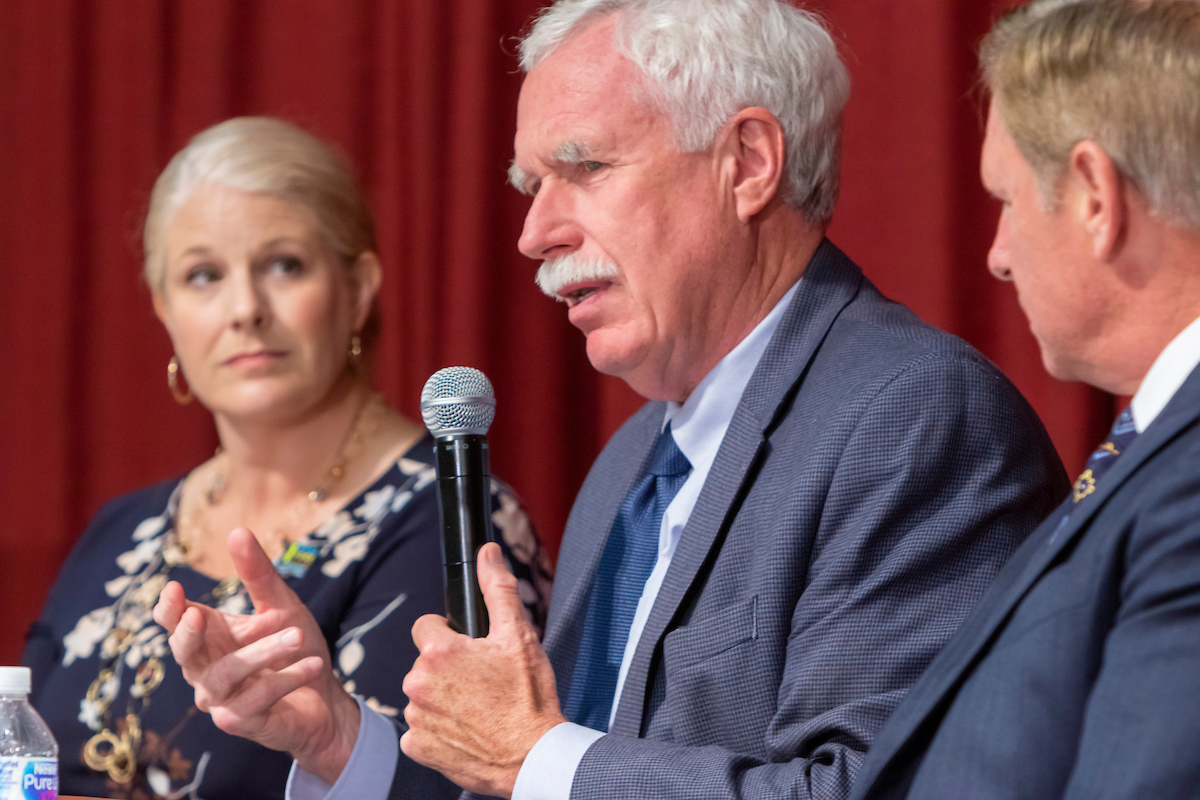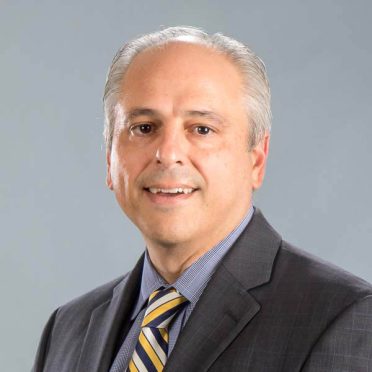As part of the seventh Annual World Suicide Prevention Day Conference Sept. 13, Hartford HealthCare Behavioral Health Network hosted a panel presentation about the role of healthcare providers in suicide prevention.
The panel included Behavioral Health Network Physician-in-Chief John Santopietro; Sgt. Kevin Briggs, a retired California Highway Patrol officer and national speaker; Michael Hogan, PhD, principal of Hogan Health Solutions, LLC; and Andrea Iger Duarte, LCSW, MPH, Behavioral Health Program Manager at the Connecticut Department of Mental Health and Addiction Services. (In the photo above, from left: Duarte, Dr. Hogan and Briggs.)
The discussion focused on empathy and building connections. Hogan said to not only think about those at risk, but also try to be more proactive and help people with stress or depression before they start thinking about suicide.
He emphasized the importance of leaning in and not leaning back when it comes to listening and offering coping strategies.
“If we can give people the skills to handle it the next time a crisis comes up, help them think concretely about ways to keep them safe, it can really help,” Hogan said. “Even something as seemingly simple as writing handwritten letter once a month can make a human connection and has been shown to lower risk.”
Duarte said the Zero Suicide initiative is part of a statewide plan. More than 35 health care systems are involved, they meet monthly to discuss ways to educate people, work with military and police and look at ways to reduce risk.
Zero Suicide is a philosophy of care and a set of tools, supported by the Action Alliance and the Substance Abuse and Mental Health Services Administration (SAMHSA) to help health care systems reduce suicide among people in care. Zero Suicide aligns with HHC’s core value of safety, and it includes recommendations around leadership, transitions, assessment, treatment, and quality improvement.
More than 200 people attended the program, which included a presentation by Briggs about his suicide intervention strategies.
Briggs said caregivers and professionals should think about how they would have a conversation with a loved one if they were worried about them, to have it in a comfortable place with privacy, list the things you’ve been seeing that are concerning you, such as loss of interest, withdrawing, lower grades; and listen to them, let them know that you are there for them.
Hogan said suicide prevention isn’t an established mission of healthcare. He compared it to heart disease and prevention of heart attacks and how there has been a decline in heart disease because of awareness.
“We need to work with people to identify who is at risk and help them,” Hogan said. “It is impressive to see you are doing that work here.”
He said training people, including in schools, hospitals, and police stations, to see the warning signs just as the healthcare world has educated people in what to do when you feel chest pain, is an important part of engaging the community and reducing suicides.
For example, the Behavior Health Network is hosting free Mental First Aid classes this fall and winter, which allows people to see the signs and assist, much like laypeople have been trained in CPR. In the class you can learn about risk factors, warning signs, mental health and addiction concerns and strategies for how to help someone in crisis. There also is a separate class for Youth Mental First Aid, designed for parents, teachers, school staff, and others, that focuses on mental health challenges young people face and teaches actions plans to help them.
The discussion was followed by a flag-lowering ceremony and a presentation of the Zero Suicide initiative posters.
Patricia Rehmer, president of the Behavioral Health Network, said it is still hard because people often face discrimination from being labeled as having mental health issues, including job loss, housing discrimination and more.
“We need to treat people the same (as we do for physical ailments),” she said. “If we did, treatment would be different.”
For more information on mental health services offered at the Institute of Living, click here.


